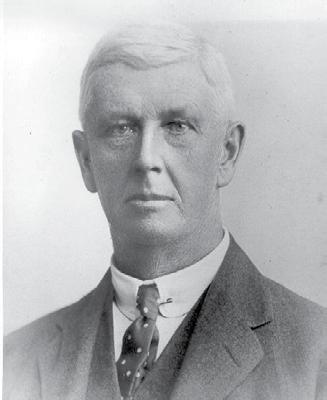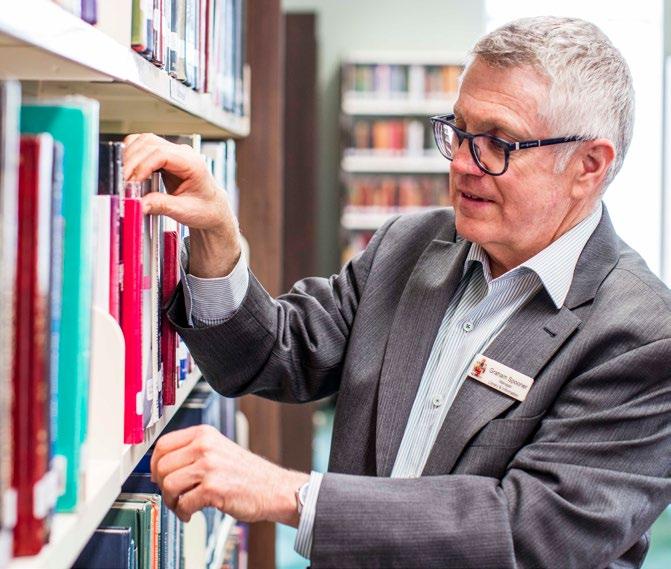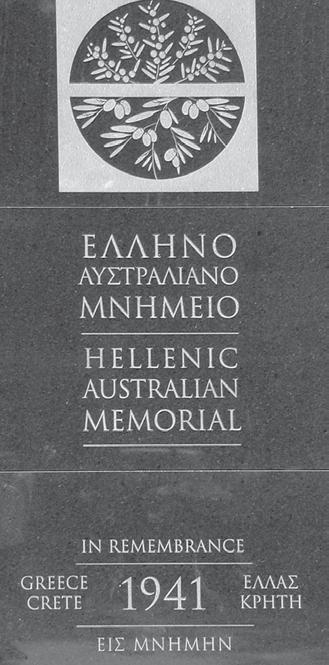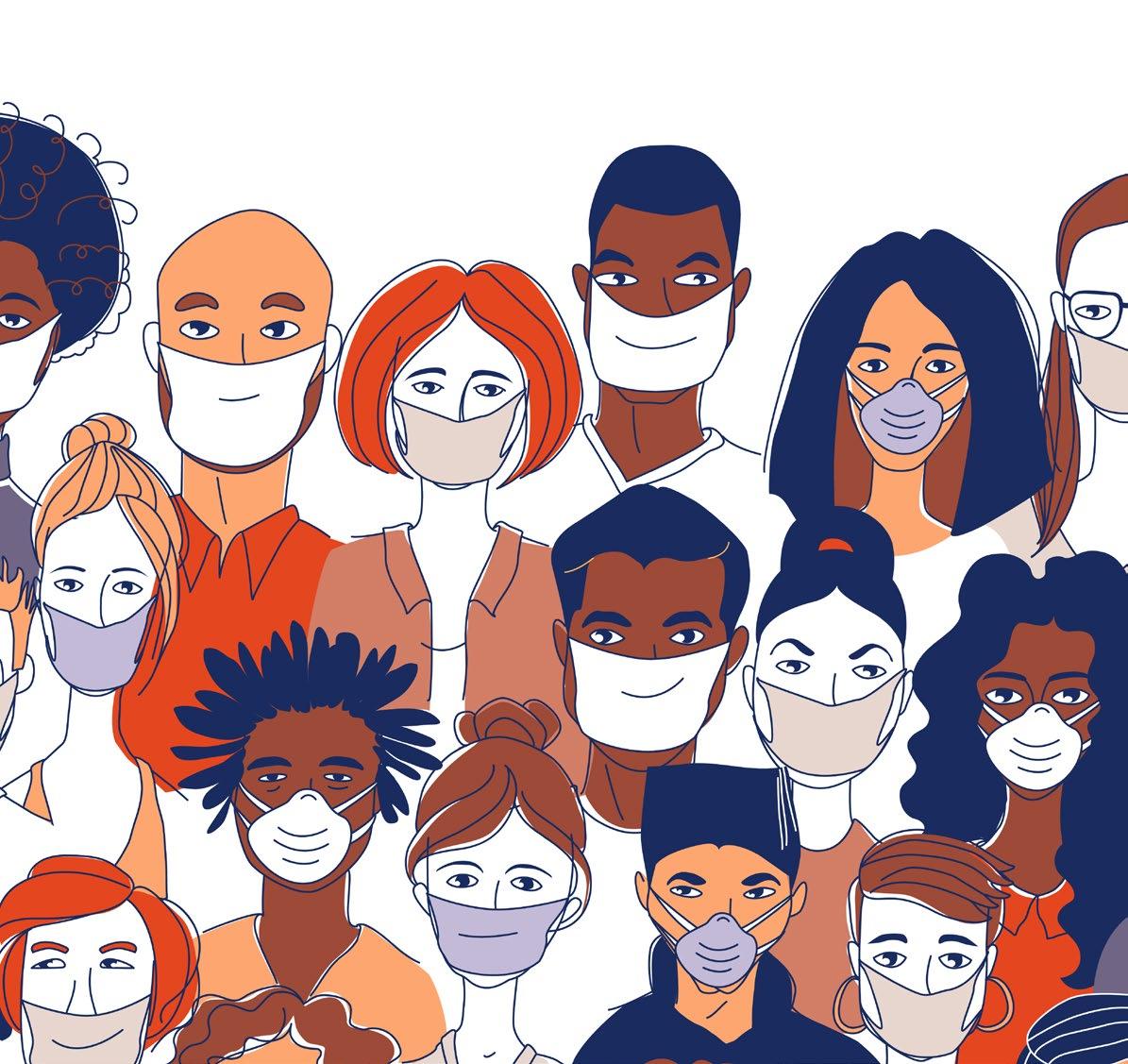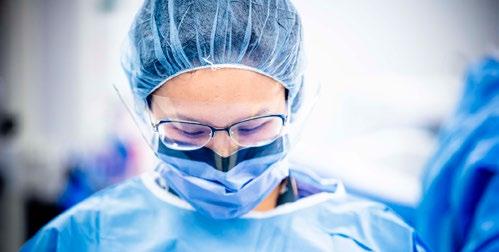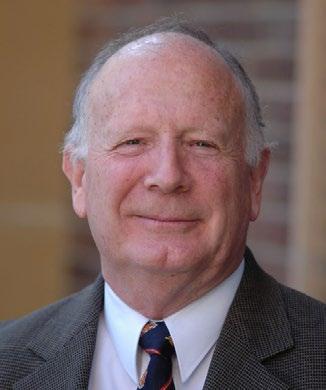
6 minute read
Sustainability working groups
New sustainability working groups active on many fronts
Health sector must clean up its act
Advertisement
As countries and continents locked down to contain the spread of COVID-19, remarkable pictures began to emerge of marine life visibly swimming through the usually murky waters of Venice. Elsewhere in the world, clear skies suddenly broke through in cities usually blanketed by smog and pollution haze. While COVID-19 has caused devastation for individuals, health systems and economies across the globe, it has conversely led to a noticeable improvement in the quality of our environment. In May, the Commonwealth Scientific and Industrial Research Organisation (CSIRO) predicted that global emissions would reduce by 7.5 per cent in 2020, compared with 2019, if countries remained in varying levels of lockdown until the end of the year. While the reduction in emissions has been possibly the only beneficial side effect of this pandemic, clearly we cannot rely on the temporary effects of a major health and economic catastrophe to meet our international agreements on climate change. Nor would we ever want to! Instead we must develop and implement the appropriate long-term policy measures right across our society. In our own backyard, health care is a major contributor to environmental damage. It is estimated health care is responsible for 7 per cent of greenhouse gas emissions, with hospitals contributing two thirds of that. It is a matter of human life: the World Health Organization estimates pollution causes 4.2 million deaths per year. Hospitals are also major users of energy and water and generate large amounts of waste. A single 700-bed hospital generates more than 1.5 million tonnes of waste per year, 25 per cent of that from theatres, with 77 per cent ending in landfill. The magnitude across Australia and New Zealand is hard to comprehend. As surgeons, we can do much to change this. With greater need for personal protective equipment (PPE) during COVID-19, this waste production is now likely an underestimate. Gloves made of latex rubber are not eco-friendly. While many surgical masks are made of polypropylene, which provide some protection from bacteria, they are still plastic-based and liquid-resistant with a long afterlife once discarded. When they spill over from landfill, they end up in the ocean. It is estimated that by 2050 there will be more plastic in the ocean than fish. The Lancet Commission on Climate and Health has previously called for the healthcare community to take a leadership role in advocating for emissions reductions, and to critically examine its own activities with respect to the effects on human and environmental health. As an organisation, the Royal Australasian College of Surgeons (RACS) supported these calls and, in 2018, the College developed a position paper on the Environmental Impact of Surgical Practice. Earlier this year we formed the Environmental Sustainability in Surgical Practice Working Group (ESSPWG), and I am pleased to say we have achieved some early successes in our attempts to strengthen our advocacy work and profile in this area. In April, the ESSPWG coordinated an important submission to the Commonwealth Royal Commission into Natural Disaster Arrangements (the Bushfire Royal Commission). I was then asked by the Royal Commission to participate in a videoconference consultation where I elaborated on our submission. The Commission subsequently released an issues paper for further comment, to which we provided another submission, highlighting issues such as the health impacts of bushfire smoke. In July, we responded to the Australian Government’s consultation ‘Australia’s Foreign Affairs, Defence and Trade policy in a post-pandemic world’. In our response we highlighted the risks to our region of failing to adopt stronger environmental policies and the consequences of failing to manufacture products for our own needs, such as PPE and ventilators. Most recently, we expressed our support for a letter sent to the Australian Prime Minister, co-signed by 10 specialist medical Colleges and organisations. The letter praised the Australian government for its handling of the COVID-19 emergency and urged a similarly proportional response to the climate change emergency. Government has a central role to play. For example, in the United Kingdom, the Climate Change
Act 2008, has not only resulted in a reduction of emissions, but strategies implemented are currently saving $160 million per year. There is still much more for the College to do, and I will continue to keep you updated on our progress. I encourage anyone who would like to know more about our work in this area, or who would like to become involved, to contact the College’s Advocacy team at racs.advocacy@surgeons.org. We are particularly interested in local strategies that have reduced the impact on the environment. The ‘new normal’ has become somewhat of a catchphrase throughout the pandemic. I am hopeful that when we finally emerge on the other side, our new normal will involve greener industries, cleaner energy and reduced waste. I am excited to see how we as a College can contribute to this.
Professor David Fletcher FRACS Chair Surgical Directors Section Past chair Professional Development
Fellows value telehealth
Before the pandemic only 11 per cent of Fellows utilised telehealth regularly, but with its rapid uptake since March a significant majority see its value, with more than 87 per cent saying they would consider continuing to use it once social distancing restrictions are eased. More than 93 per cent of surgery patients are satisfied with the quality of their telehealth consultations, and more than 97 per cent agree that their surgeon was able to answer their questions clearly and satisfactorily. These point-in-time statistics come from two ongoing surveys of Australiabased surgeons and surgery patients that, at the time of writing, have more than 600 and 700 respondents, respectively. The survey project is being driven by the Sustainability in Health Care Working Group, which made it a priority at its first meeting in June this year, and is being jointly developed with researchers at Hunter New England Local Health District. In addition, RACS’ research team, RAAS-ASERNIPS, is looking at the findings of previous Australian and international studies of telehealth. The working group decided to undertake this project as we believe that the data gathered, as well as being useful to discussions around telehealth in clinical practice, has the potential to be persuasive with Australian governments as they consider funding arrangements for telehealth beyond the pandemic. RACS has already engaged with various levels of government in relation to this work and we will continue to do so in coming months as the data is analysed. The working group plans to take a similar strategic approach – combining rigorous evidence with targeted government engagement over the long-term – to all its priority advocacy issues. For example, a similar approach is being taken in relation to protecting the title of ‘surgeon’, an issue that the working group has also made an advocacy priority. Last November, the Council of Australian Governments Health Council agreed to a process to decide which medical professionals should be permitted to use the title ‘surgeon’. Under the auspices of the working group, RACS staff are monitoring this process closely, engaging with government, and coordinating with speciality societies and state committees in order to ensure the position we put to government is strong and evidencebased. As Chair of the working group I have also taken the lead in RACS’ engagement with the Australian National COVID-19 Clinical Evidence Taskforce. Following internal consultation, I was recently nominated as the RACS representative on the taskforce’s Guidelines Leadership Group and its Steering Committee. The Taskforce plays a key role in Australia’s COVID-19 response, undertaking continuous evidence surveillance to identify and rapidly synthesise emerging research in order to provide national, evidence-based guidelines for the clinical care of people with COVID-19. A RACS voice on the taskforce will be a valuable two-way conduit for evidence relating to the management of COVID-19 patients relevant to surgeons. It has only been a few months, but I genuinely believe that the model of an active group of Fellows with a dedicated focus on strategic policy and advocacy is already showing its value.
Professor Mark Frydenberg AM MBBS FRACS GAICD Chair Sustainability in Healthcare Working Group Chair Research & Academic Surgery

